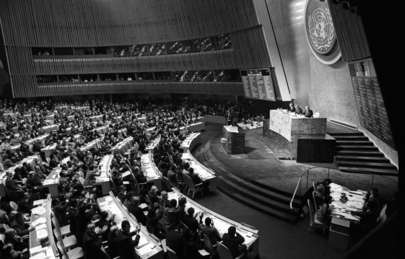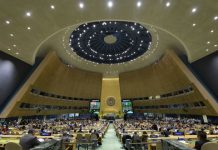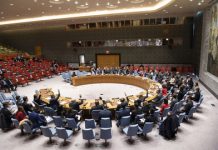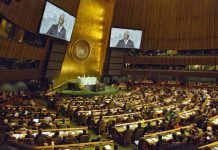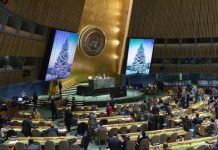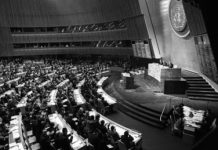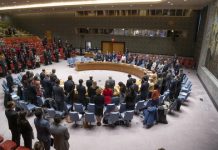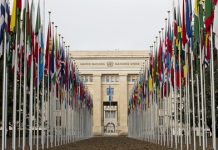Acting on the recommendation of its Fifth Committee (Administrative and Budgetary), the Assembly endorsed the budgets for 12 missions, the logistics centres in Entebbe (Uganda) and Brindisi (Italy), and the support account for peacekeeping.
The budgets were adopted without a vote, except for the resolution on the UN Interim Force in Lebanon (UNIFIL), which was adopted by 147 votes in favour to 3 against (Argentina, Israel, and United States), with 1 abstention (Paraguay).
The adoption of UNIFIL’s budget followed an Israeli-proposed oral amendment, which was rejected by 5 votes in favour (Argentina, Canada, Israel, Paraguay, and US) to 83 against, with 57 abstentions.
Last year, the peacekeeping budget stood at $5.59 billion for 14 operations, meaning the 2025-2026 figure reflects a modest decrease, following final settlements of former missions in Côte d’Ivoire and Liberia.
Pressing liquidity challenges
Despite the agreement on the budgets, UN Controller Chandramouli Ramanathan outlined a sobering picture about the fragility of the UN’s broader liquidity situation.
“You manage somehow to find common ground three times a year. But I only wish you had gone a little bit further to solve one of the underlying problems of the UN, which has been plaguing us for 80 years,” he told delegates last week as they concluded negotiations in the Fifth Committee.
He described how approved budgets are often undermined by cash shortages, forcing immediate instructions to slash spending by 10, 15, or even 20 per cent.
“No money, no implementation. There is not enough cash. I cannot emphasize enough a massive effort needed on your side to somehow take us over that line and deal with a problem that’s plagued the UN for the last so many years,” he said.
UN peacekeeping operations
UN peacekeeping remains one of the most iconic UN activities, with nearly 70,000 military, police and civilian personnel deployed across Africa, the Middle East and Europe.
Missions include long-standing deployments such as MONUSCO in the Democratic Republic of the Congo, UNFICYP in Cyprus, and MINUSCA in the Central African Republic. Mandated by the Security Council, these operations work to stabilize conflict zones, support political processes, protect civilians, and assist in disarmament and rule-of-law efforts.
UN’s peacekeeping budget is separate from its regular budget, which supports the Organization’s core programs, including human rights, development, political affairs, communications and regional cooperation.
The peacekeeping budget cycle runs from July-June, while the regular budget is aligned with the calendar year.
Source of original article: United Nations (news.un.org). Photo credit: UN. The content of this article does not necessarily reflect the views or opinion of Global Diaspora News (www.globaldiasporanews.com).
To submit your press release: (https://www.globaldiasporanews.com/pr).
To advertise on Global Diaspora News: (www.globaldiasporanews.com/ads).
Sign up to Global Diaspora News newsletter (https://www.globaldiasporanews.com/newsletter/) to start receiving updates and opportunities directly in your email inbox for free.


